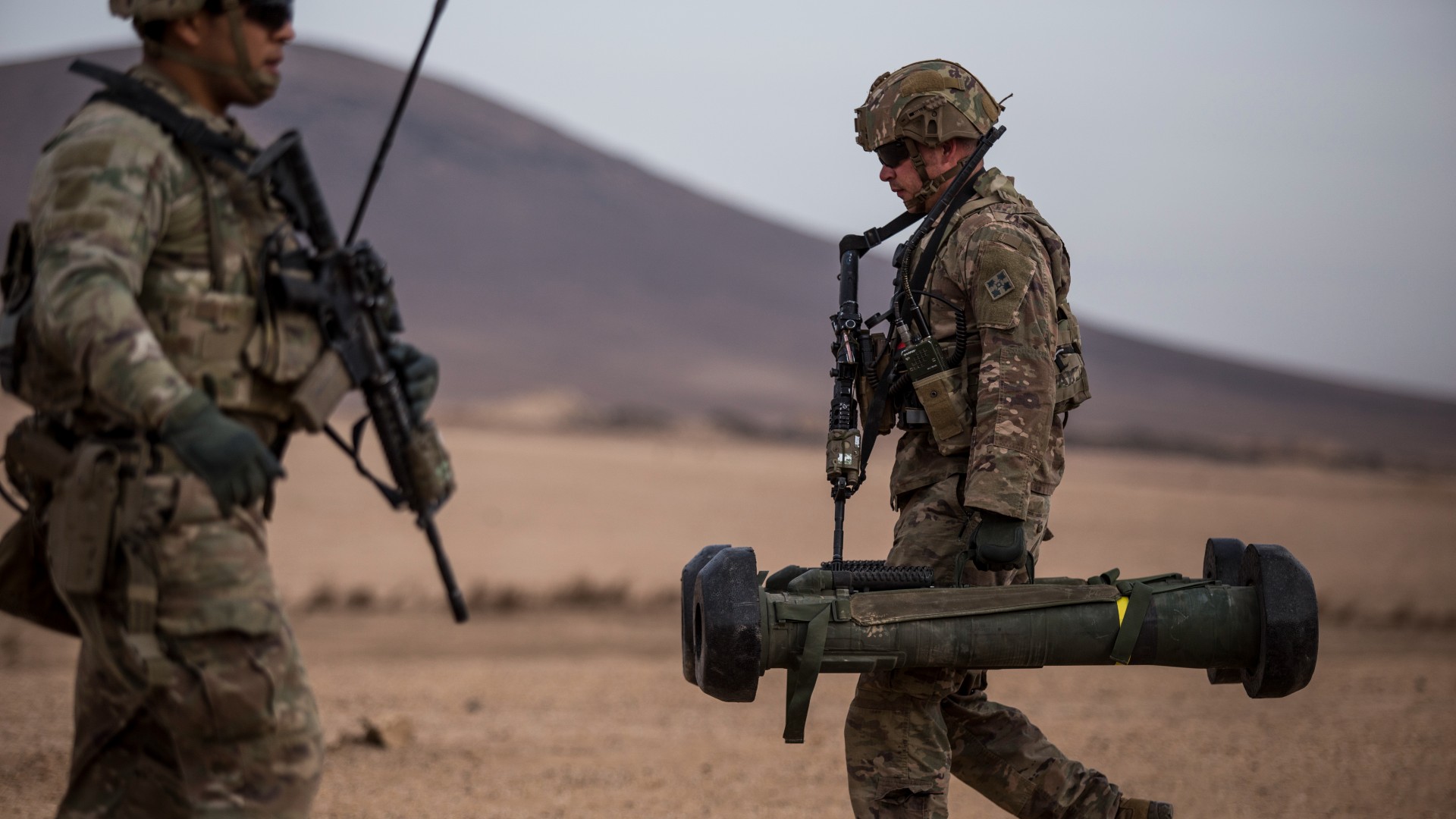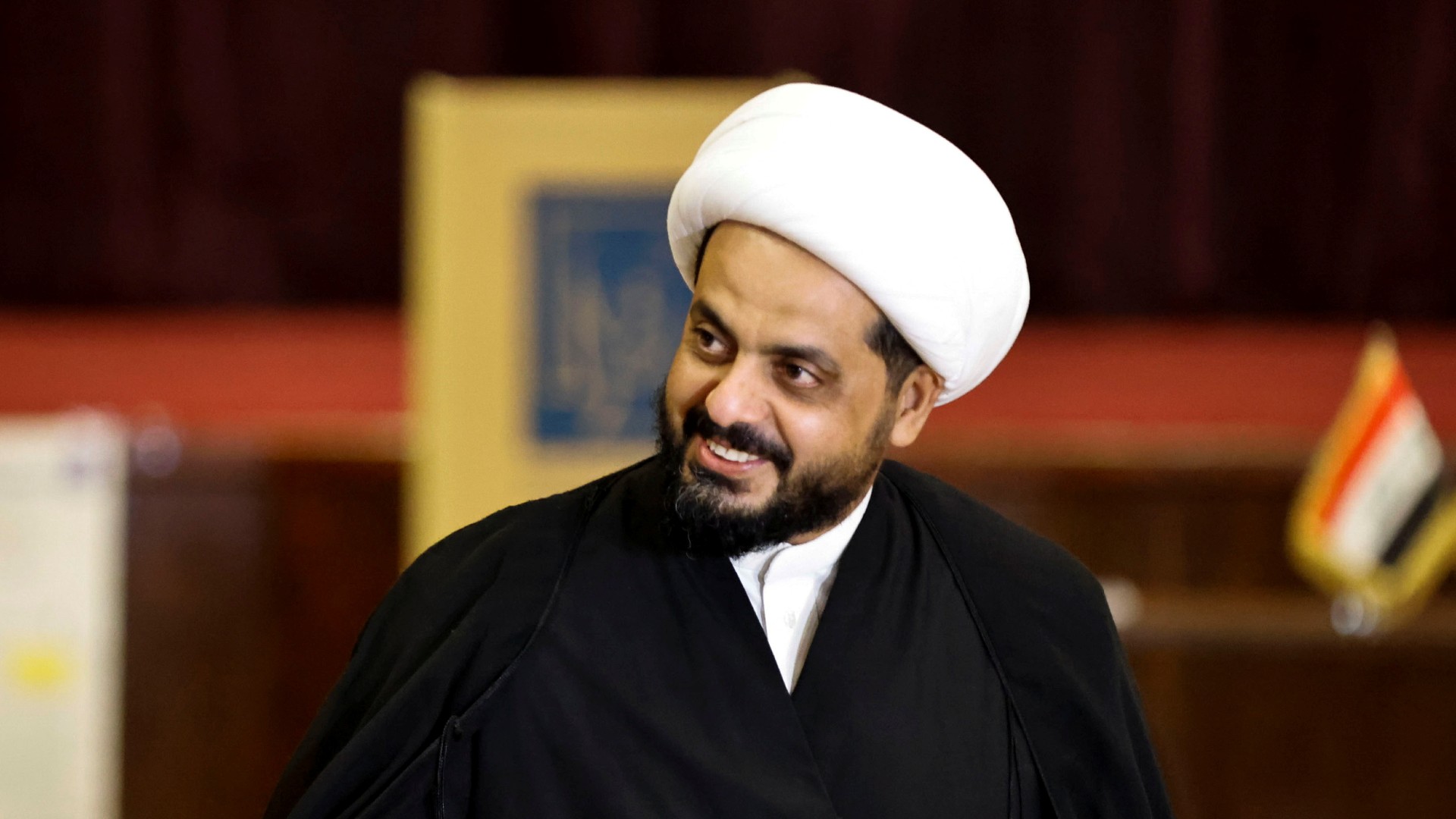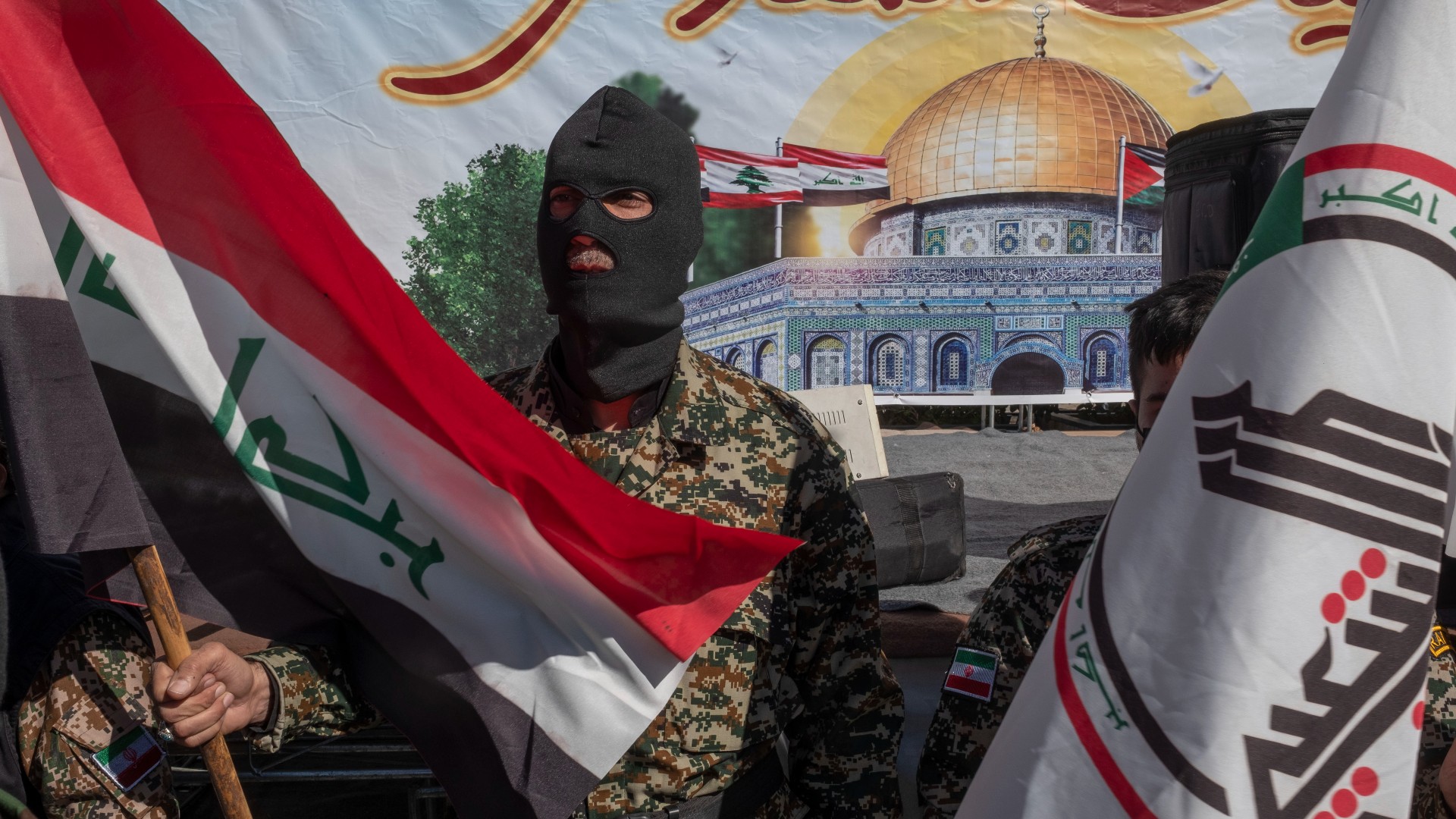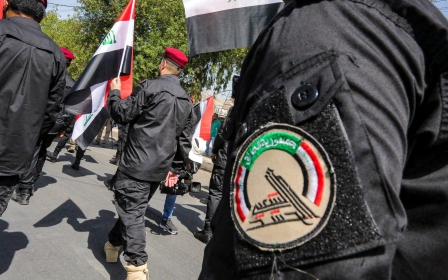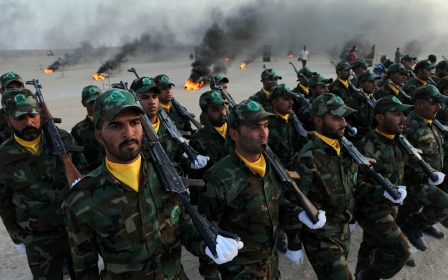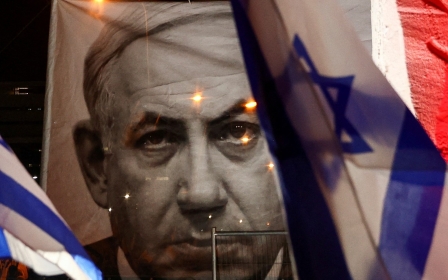How Iraq's calm became a deadly threat for one pro-Iran leader
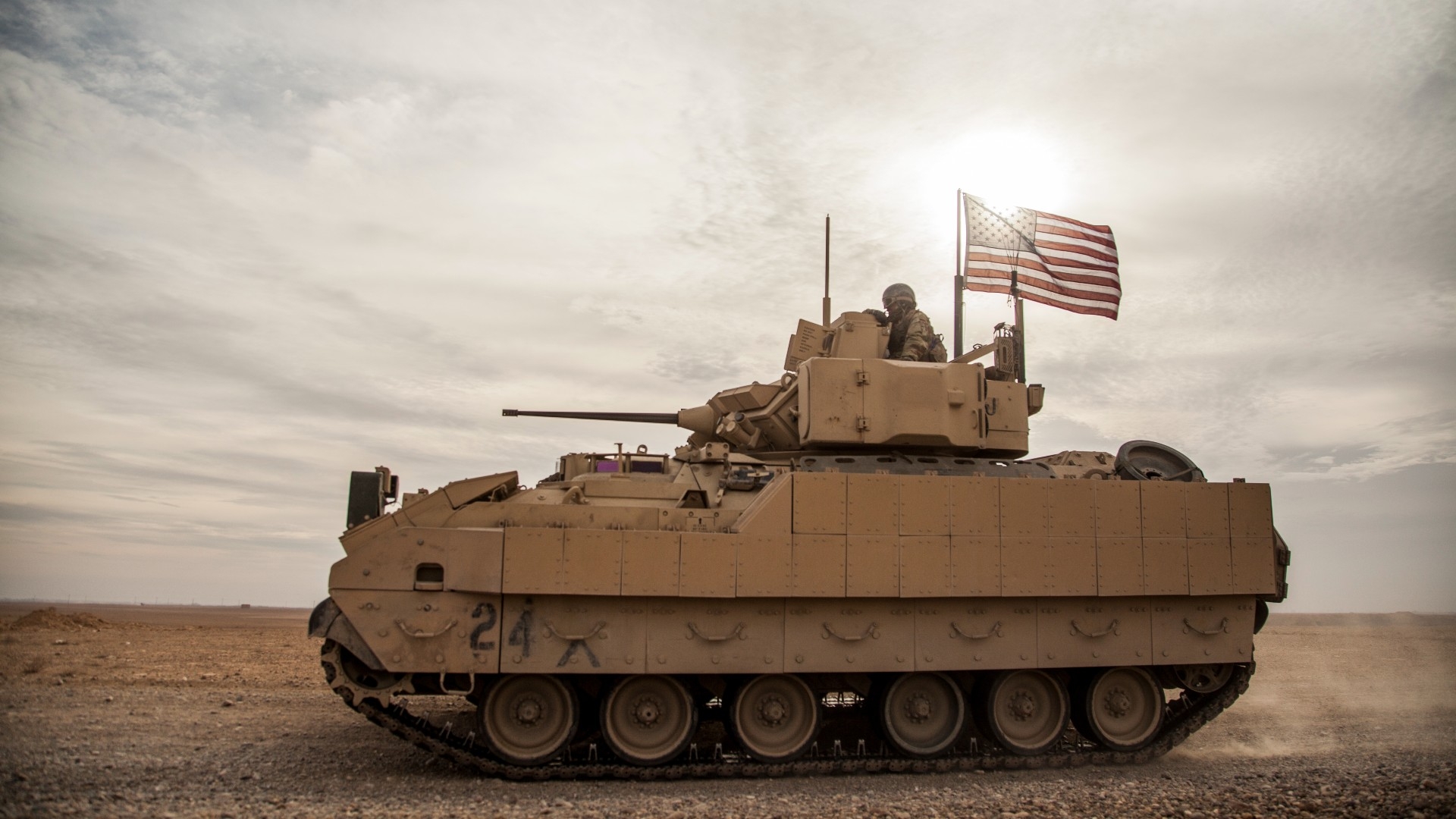
On 20 January, three suicide drones targeted al-Tanf, a military base in southeastern Syria hosting US forces.
The attack didn't cause significant losses: the troops there shot down two of the drones, while the third exploded after colliding with a building belonging to an allied Syrian rebel group, US forces said at the time.
Two days later, an unknown armed group called "the Inheritors" claimed responsibility.
Its statement, published by websites linked to Iranian-backed armed factions, was adorned with a green title that read "Islamic Resistance in Iraq - Formation of the Inheritors".
"No one can ever stop our operations," the group said, dating the statement as the same day the operation was carried out.
"We warned a lot against complacency and kneeling before the American occupation in the region, and whoever does not hear our voice calling for the removal of the occupier will kneel before the bullets of our guns," the statement said.
Two weeks later, US President Joe Biden made a phone call to Iraqi Prime Minister Mohammed Shia al-Sudani.
During the call, Sudani's media office said, Biden affirmed "his unwavering support for a stable, secure and sovereign Iraq" and expressed his backing for the prime minister's government.
But on that call, Biden also relayed his administration's "displeasure" with "attacks carried out by armed Iraqi groups" targeting US forces in Syria, Iraqi officials told Middle East Eye.
Sudani's readout of the call actually touched on that point, saying the two leaders agreed that "Iraq should not be used as a springboard to attack" its neighbours or forces belonging to the US-led coalition against the Islamic State group.
Biden "gently" reminded Sudani that his administration "widely supports his government, but this support is neither free nor open", a close associate of Sudani told MEE.
Sudani "must take advantage of his proximity to the armed Iraqi factions to rein them in to ensure continued American support. This is exactly what the content of that call was", the associate, who is also a Shia political leader, told MEE.
Sudani then raised the issue at a meeting of the leaders of the Coordination Framework, the Shia political alliance backing Sudani that includes the Iranian-backed armed factions in Iraq.
"The meeting agreed to avoid embarrassing Sudani and not clash with the Americans at that time," a Coordination Framework leader told MEE.
"It suits their interests, and the decision was not challenged by any of the Coordination Framework leaders, although some of them preferred to remain silent."
An attack breaks the calm
In the following weeks, attacks against US forces in Syria did not stop, but they did decrease significantly.
That may have been because everyone was preoccupied with the devastating earthquake that struck southern Turkey and northern Syria in February, killing more than 50,000 people.
A landmark agreement signed by Iran and Saudi Arabia in Beijing in March to resume diplomatic relations also seemed to calm the region.
Yet while most Iraqi armed factions, affiliated with Iran or otherwise, busied themselves with funnelling earthquake aid to parts of northern Syria, one instead launched an attack in the country's northeast.
On 23 March, an armed drone attacked a maintenance facility at a US military base near Hasakah, northeastern Syria.
The attack killed a US contractor and wounded another, the Pentagon said. Five American soldiers were also wounded.
Believing the drone was of Iranian origin, Washington responded hours later with a series of strikes on headquarters and weapons depots belonging to Iran-backed groups in the countryside of eastern Syria's Deir Ezzor, al-Mayadeen and Albu Kamal.
At least 11 pro-Iranian fighters were killed in those strikes, local sources said.
Two days later, an unknown group calling itself the "Ghaliboun Brigade" claimed responsibility.
Unlike "the Inheritors", it did not reveal any direct links with Iraqi armed factions, nor was its statement widely circulated on their media platforms, as is customary. The very few Telegram channels that published it made sure that it was accompanied by the phrase "a faction calling itself Liwa al-Ghaliboun claims the operation".
Unusually, both Kataeb Hezbollah and Asaib Ahl al-Haq, the two fiercest Iraqi armed factions operating in Syria over the past decade, hastened to declare their innocence.
Sudani, for his part, "sought to calm the situation" and gave guarantees to the Americans and armed factions that he hoped would deescalate the situation, "fearing things would get out of control", one of his advisers told MEE.
"Although the operation was successful and the planning and implementation was high level, most of the factions' leaders denied their connection to it and some of them kept silent," a leader of one of the armed groups said.
"The operation represented a violation of the truce announced by the factions months ago, and caused great embarrassment to Sudani and the government. He had to intervene quickly and stop the snowball rolling before what he and his allied faction leaders had built over the past year collapsed."
Yet the matter did not end there.
In mid-April, one of the heads of an armed faction received a warning from a Kurdish leader.
According to a Shia leader involved in the events, the Kurdish leader said the Americans had infiltrated several Iraqi armed factions and were planning to target their leaders, warehouses and secret headquarters in the southern governorates of Wasit and Dhi Qar "if the attacks on the coalition forces in Syria continue".
Anxiety grew and disputes began to surface among the heads of the factions because of "the leader who deviated from the consensus and acted without taking into account the interests of all", the Shia leader said.
'Treason always comes from within because of the conflict of interests, so the Americans succeeded in penetrating our organisations'
- Harakat Hezbollah al-Nujaba leader
The chiefs of these factions began their own enquiries, and received a torrent of messages from sources close to US authorities that act as a backchannel between the two sides. They confirmed the "seriousness of the matter", and included new details, including the name of the faction the US blamed for the attack.
It was the Harakat Hezbollah al-Nujaba. The faction's leader, Akram al-Kaabi, "will be terminated wherever he is", armed groups were warned.
Confirming their fears further, Iran asked Kaabi to "reconsider his security measures", a Harakat Hezbollah al-Nujaba leader told MEE.
Al-Nujaba, the leader said, was defiantly adhering to the ideals of the resistance movement when other factions seemed to turn their back on the struggle.
"Kaabi is the only one who has remained true to his principles, and al-Nujaba is currently alone in the field. The rest of the factions no longer represent a real threat to the Americans," the al-Nujaba leader said.
"Treason always comes from within because of the conflict of interests, so the Americans succeeded in penetrating our organisations. We know that America will not enter into open war with anyone now, but it will not hesitate to carry out an assassination."
Middle East Eye has asked the US embassy in Baghdad for comment.
Isolate and neutralise
Ever since influential Shia cleric Muqtada al-Sadr quit politics and ordered his MPs to leave parliament a year ago, the Coordination Framework has dominated Iraq and its politics in an unprecedented way.
Asaib Ahl al-Haq leader Qais al-Khazali played a pivotal role in naming Sudani as prime minister and forming his cabinet. Kataeb Hezbollah MPs, meanwhile, have successfully acted as a lobby in parliament, easing through several items of the budget that were opposed by Kurdish and Sunni parties.
After taking power via Sudani's government, the Iranian-backed factions decided to stop targeting US interests and forces "to give an opportunity to form a government that works to provide services", as Khazali put it.
When Khazali addressed his followers on television to mark Eid al-Adha last month, he called this "one of the most important decisions that helped form the current government".
Over the past year, Asaib Ahl al-Haq's influence has grown exponentially, while Khazali has behaved as a kind of guardian to Sudani's government.
It's a dynamic that is now antagonising his comrades in other factions and frightening political partners, who have begun to feel that Khazali has turned into a "train that can run over anyone who gets in his way", as a commander of an Iranian-backed faction described him to MEE.
"Khazali considers this government to be his government. His decisions are at the forefront within the Coordination Framework now," the commander said.
"As for the rest, they cannot keep up with the speed of Khazali's rise or his influence. Everyone feels that Khazali would give him up if necessary, or crush him on his way to achieving goals."
Though the media performances of Khazali and other Asaib leaders adds to this picture, three of Sudani's advisers were keen to downplay the faction's dominance.
It is a "portrait drawn and promoted" by Asaib leaders to "win the loyalty of senior officials and officers in various government institutions", they said.
"Khazali has a political project and seeks to integrate his group more into the political scene, so he backs the government and works to engage more in its activities," one adviser told MEE.
"Asaib Ahl al-Haq is more organised and institutional than the rest of the factions, and this accelerates the process of their integration into the political scene, which raises the concern of the rest."
However, the advisers said Khazali had become a "destination" for ambassadors and diplomats, including from the European Union, who are posing for photos with him.
"Khazali plays an essential role in the current political and security stability," another adviser said.
'Most of the factions have changed their tactics and no longer represent a real threat to the Americans'
- Leader of an armed faction
And by actively discouraging actions that may destabilise security, factions and figures that want to remain aggressive are weakened and exposed, the adviser added.
Western diplomats told MEE that having the Iranian-backed armed factions in power has severely limited their illicit and disruptive activities.
The number of attacks targeting US-led coalition forces in Iraq and Syria since June last year has decreased significantly, they added.
Though Khazali has attributed this to the "temporary truce", his comrades in other factions see the matter from another angle.
"Most of the factions have changed their tactics and no longer represent a real threat to the Americans," a leader of one told MEE.
"They have become people of power, and power needs to engage in settlements and make concessions to preserve it. Whatever will happen, they will do nothing but issue statements of denunciation and threats here and there to save face."
The next fight is priority
Last month, a conference was held in Tehran by the Coordination Committee of the Islamic Armed Resistance. It was attended by the heads of all Iranian-backed armed factions and their representatives, gathering delegates from across the Middle East in support of the Palestinian cause.
The Iraqi delegation was headed by Hadi al-Amiri, leader of the Badr Organisation, the oldest armed Shia faction backed by Iran and a key figure in the ruling coalition.
The conference was routine, but it provided an opportunity to meet leaders of other Middle Eastern armed factions, and the Iranians overseeing issues in Iraq, as well as mobilise support for Palestinian resistance in Gaza.
The conference's work lasted for two days, though nothing in particular attracted attention.
"The meetings were routine, and the conversations all focused on the recent events in Jenin," a Coordination Framework leader familiar with the details told MEE.
The surprise was that Iranian Supreme Leader Ali Khamenei personally attended the meetings that were held with every delegation on the sidelines of the conference.
"The outcomes of the meetings were good," the Framework leader said.
Khamenei told the delegations they must support stability in Iraq and abide by the Coordination Framework's decisions. They must also, he added, put pressure on the Iraqi government "so it does not go too far towards the West and become a hostage in their hands".
The Iranians believe they have limited the US presence in Iraq and Syria, and are keen the armed factions take no action that could provide Washington with a reason to return in large numbers, the Framework leader said.
"There is a sharp turning point in the region, especially after the Iranian-Saudi agreement. The Iranians do not trust that the Iraqi armed factions fully understand the recent changes in the region and that they will behave well, so the master [Khamenei] personally intervened to stress the importance of the matter," he added.
Since the Russian invasion of Ukraine in February 2022, the US has sought to settle issues in the Middle East to focus on its competition with China and maintaining global oil supplies while putting pressure on Moscow.
This gave Iran an opportunity to be part of the process of deconfliction in the region.
"The position of the Iranians is not exclusively linked to the changes inside Iraq or the agreement with Saudi Arabia. It is linked to what is happening in the region as a whole," Elie Abu Aoun, non-resident senior fellow at the Religion and Security Council in Rome, told MEE.
"All the arenas in the region, including Libya, Yemen and Lebanon, are heading towards settlement and appeasement. The Iranians want to be part of this settlement as part of preparation for their next front with Israel," he added.
"They do not want to open this front before the other fronts are settled, or at least calmed down. There is a change in tactics. Any unnecessary battles must stop now because the real battle is with Israel."
Middle East Eye propose une couverture et une analyse indépendantes et incomparables du Moyen-Orient, de l’Afrique du Nord et d’autres régions du monde. Pour en savoir plus sur la reprise de ce contenu et les frais qui s’appliquent, veuillez remplir ce formulaire [en anglais]. Pour en savoir plus sur MEE, cliquez ici [en anglais].


